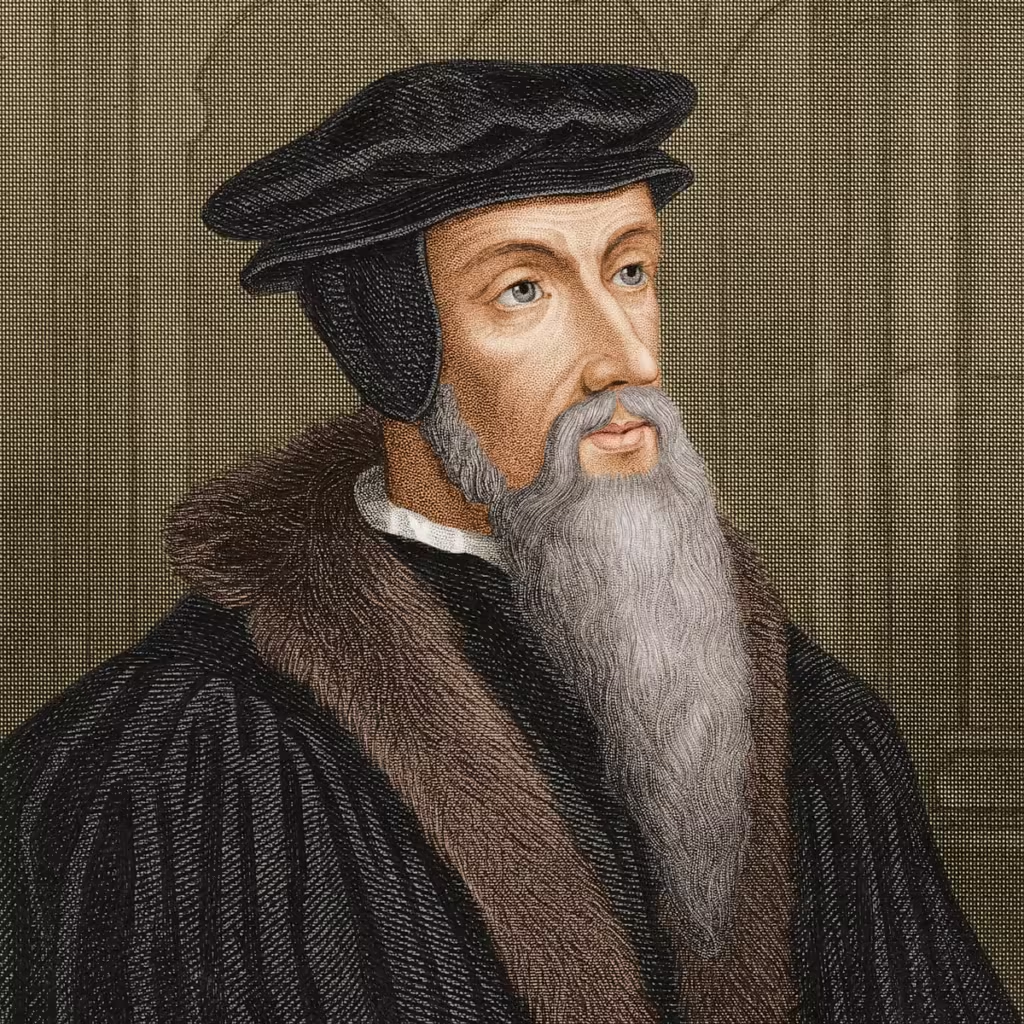
Table of Contents
Synopsis
Born in France in 1509, John Calvin was a leading theologian and ecclesiastical statesman who succeeded Martin Luther as the foremost Protestant theologian. His contributions profoundly shaped the foundational doctrines of Protestantism, earning him recognition as the most influential figure of the second generation of the Protestant Reformation. Calvin passed away in Geneva, Switzerland, in 1564.
Background
John Calvin was born on July 10, 1509, in Noyon, Picardy, France. Initially a law student at the University of Orléans, he soon aligned himself with the Reformation. In 1536, Calvin published his seminal work, Institutes of the Christian Religion, a pivotal text that aimed to systematize the core principles of Protestantism. His theological teachings underscored the supremacy of scripture and divine predestination, the belief that God, through His omnipotence and grace, predetermines who will be granted salvation.
Leading Figure of the Reformation
Calvin’s leadership in the Reformation took shape in Geneva, where he briefly resided before being expelled by anti-Protestant forces in 1538. He was invited back in 1541, and upon his return from Germany, he assumed a significant spiritual and political role. Calvin established a religious government in Geneva based on Protestant principles, gaining absolute authority by 1555.
As Martin Luther’s successor, Calvin was known for his intellectual and measured approach to theology, in contrast to Luther’s more impassioned style. Calvin’s governance in Geneva was marked by strict religious discipline, and those deemed guilty of “impiety” or dissent faced harsh penalties, including execution or exile. Despite these rigid policies, Calvin’s Geneva became the epicenter of Protestantism, sending pastors across Europe and influencing movements such as Presbyterianism in Scotland, the Puritan movement in England, and the Reformed Church in the Netherlands.
Death and Legacy
Calvin died on May 27, 1564, in Geneva. His burial site remains unknown. Today, he is remembered as a central figure in the development of Protestant theology and one of the most influential leaders of the Protestant Reformation.
